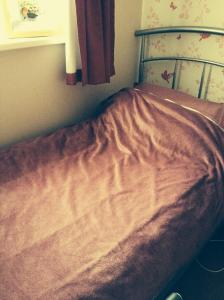Medical Definition of Flare: 1. an exacerbation of a chronic disease. Often referred to as a flare-up, a flare occurs when symptoms of a disease that has been present for a time suddenly worsen. A flare is a transient worsening of a disease or condition that eventually subsides or lessens.
One of the most frustrating and stressful aspects of living with a chronic illness is the unpredictability. The never knowing how you are going to feel or any given day. Never knowing if today is going to be the day when symptoms are going to worsen suddenly.
[Tweet ” Concerning chronic illness, a flare occurs when its symptoms suddenly worsen.”]
We can become hyper-vigilant, analysing every pain or unusual sensation as a potential precursor for an oncoming flare. It can feel powerless; we control the tiniest aspects of our health we can such as pacing ourselves, ensuring we get enough sleep and maintaining a good diet. But still, we find ourselves in the midst of a flare.
And when we are in the midst of a flare, there is still worry and uncertainty. Just as we are in the dark as when a flare will occur, it’s also not known how long it will last. The increased disability, isolation, loneliness, and guilt only add to the stress. And the longer the flare, the greater these stresses impact us. However, these stresses can not only be consequences of the flare, but they also have the potential to prolong it.

Living with a chronic illness and experiencing a flare is very much like riding a tumultuous rollercoaster. A rollercoaster with many ups and downs, twists and turns, but not knowing when they are going to occur.
[Tweet “Experiencing a flare is like riding a roller coaster – lots of ups and downs and twists and turns!”]
In my last post, ‘Becoming Lost During a Flare: Revisiting Acceptance‘ I discussed the effect that my latest flare has had on not only my physical health but also the impact it has on my emotional health. The anxiety and loss of confidence that has resulted from the physical and psychological losses that have occurred during this particular flare. The symptoms have become a thief, stealing little things which are essential to me and help me function within the world around me.
Given that the experience of a flare is negative, how can we survive while going through one?
How To Survive a Flare
Surrender
It’s interesting that this word has such negative connotations. For many, surrendering means giving up. The reality is that it means letting go. Before, acceptance when a flare would occur, I could feel myself tensing, trying to fight against it, to make it go away. Doing so, however, actually had the oppositive effect. Instead, the flare would fight back, becoming stronger. By surrendering, we choose to accept the reality as it is in the moment. And when we accept the reality, we are more likely to take the steps needed to take care of ourselves appropriately.
[Tweet “When we accept the reality, we are more likely to take steps needed to take care of ourselves.”]

‘This Too Shall Pass’
As stated in the definition at the top of the post, a flare indicates as a transient worsening. Transient of course meaning fleeting or short-term. It will eventually subside. No matter how many lows there are on our roller coaster, we will ultimately find the highs again. And we must remind ourselves that during the darkest times; to hold onto hope.
[Tweet “It’s important to remember that flares are fleeting and will eventually subside.”]
Don’t Blame Yourself
When we are experiencing a flare, there is a tendency to look back on what we have done which could have triggered it. To blame ourselves for our current predicament and think that we could have avoided it had we done x, y or z. The reality is, however, that it is not our fault. Our bodies and symptoms are highly unpredictable with its own rules and agendas; flares are often unavoidable and going to occur whatever we choose to do. Feeling guilty is not productive and is not going to make you feel better.
[Tweet “Feeling guilt is not productive; symptoms are highly unpredictable with its own rules.”]
And on those occasions that the flare was a result of our actions, we can use it as an opportunity for growth. To learn from our mistake and to resolve to do better in the future. Blame and recriminations are not going to help you feel better. What will help is to return to those self-care behaviours (such as resting) that will ease the burden of suffering worsening symptoms cause.
Remind Yourself of Your Accomplishments
While in the midst of a flare, we are unable to achieve very much. Regardless of the size of our to-do list, we are unable to gather the strength or motivation to complete the tasks. As a result, it can lead us to feel unproductive, as if we are failing ourselves and those around us. We never, however, celebrate and reward ourselves for which we can do, especially in the face of adversity and limitations. So, ditch the to-do list and instead make a list of the things you have done despite chronic pain and other debilitating symptoms! And reward yourself – enjoy your favourite snack or put on a feel-good film.
[Tweet “During a flare, ditch the to-do lists and congratulate yourself on what you have achieved.”]
Create a Self-Care Box
As we never know when a flare will occur, or even how long it will last. Preparing a Self-Care Box is something you can create beforehand to help you during times of extreme worsening of symptoms. By being proactive and making a plan before its onset, we remove the challenge and stress of coming up with a sufficient self-management plan, which can be difficult when we are in the midst of one.
[Tweet “A Self-Care Box should contain things which make you laugh, to help calm you, and ease suffering.”]
A self-care box should contain various items that comfort and please you; things that nourish your soul and help you cope during times of stress and suffering. It could include an MP3 player full of songs that help relax and makes you happy. It could also contain meditation and relaxation exercises which are excellent at reducing stress. Other items might include magazines and books, inspirational quotes and affirmations, a journal for when you feel well enough to write. I always add my favourite pair of comfortable pyjamas. Things to make you laugh, things to make you calm, and ease your suffering. These are all ideas on what to include, but a self-care box should be personal to the individual.
Find Distractions
We all need a break from the chronic pain and other debilitating symptoms. However, when experiencing a flare this can be easier said than done. As much as you can do, find a break and solace from crippling symptoms through distraction. Read a gripping book. Watch a mindless TV show or an utterly magical film. Read articles online about a subject that fascinates you. A distraction, of course, will not take the pain away entirely but by taking attention away from it, but it might make it easier to manage. It can also help prevent catastrophising thoughts that can exacerbate symptoms.
[Tweet “Distractions can help prevent catastrophising thoughts which can exacerbate symptoms.”]

Seek Support From Your Tribe
Attempting to endure chronic illness on your own can be isolating, leading to anxiety and depression. It can also worsen the already debilitating symptoms, prolonging the duration of the flare. Reaching out to others for support and encouragement when pain levels rise and symptoms intensify. Just talking about how you are feeling, and confiding the extent to which you are suffering to those who understand and can help calm the ferocity out of a flare. Even better is talking to those who also experience chronic illness and pain, and who can prove to be an excellent wealth of information for coping with pain and other symptoms. Join a support group or community for those living with chronic illness and pain, and be there for others when they are in need of support.
[Tweet “Reaching out to others who understand can help calm the ferocity out of a flare.”]
Those are only seven tips on how to survive a flare, but what are some of your favourite ways to cope when they suddenly occur? Feel free to add your advice to other warriors below…







